#c: ingeborg
Text
@nightmaretist replied to your post “[pm] A student brought this piece of art to class....”:
[pm] I do not pay my students but I did give them a good grade.
[pm] Sometimes I pay my students to shut up. I find that humans respond well to incentives.

How are y How have you been How's it g How a
You're a mother?
15 notes
·
View notes
Text
I have only dark words to say.
Ingeborg Bachmann, In the Storm of Roses: Mortgaged Time; from 'Dark Words', tr. Mark Anderson
481 notes
·
View notes
Text
@nightmaretist replied to your post “[pm] Are you enjoying your new house?”:
[pm] That's Cassius. Kept his good heart underneath it all, huh? Lilac sounds great. Pair it with an ocre yellow ...
[pm] That sounds about right...
[pm] A nice bright pink for the front door. He'd absolutely love it.

7 notes
·
View notes
Text
¿Historias cortas para no dormir y así no tener pesadillas? La Web del Surrealismo. Georges Malkine (1898-1970)
Georges Malkine era hijo de violinistas de talla mundial: tanto su madre danesa, Ingeborg Magnus, como su padre ruso, Jacques Malkine, tocaron con notables como Fritz Kreisler y Saint-Saëns.

Georges Malkine tenía dotes artísticas cuando era niño y asistió al prestigioso Lycée Condorcet, pero sus estudios se vieron interrumpidos por la Primera Guerra Mundial. Reclutado a los diecinueve años, fue herido mientras conducía una ambulancia en el frente y fue enviado a un hospital en París, donde conoció a Apollinaire. Tras la muerte de su madre en 1920, dejó París para viajar por África y regresó sin un centavo en 1921. Tenía que ganar dinero vendiendo corbatas en la calle, traduciendo textos en inglés, transcribiendo conciertos y revisando.
Luego conoció a Jacques Prévert, Marcel Duhamel, Yves Tanguy y Robert Desnos en 1922. Haciéndose gran amigo de Desnos, terminó compartiendo un apartamento en la Rue Blomet. Aunque Malkine había pintado esporádicamente durante años, su estilo ahora se transformó por su conexión con el movimiento.
Breton lo reconoció como un artista dedicado al "surrealismo absoluto", y Malkine fue el único pintor que firmó el Manifiesto Surrealista en 1924.
#Georges Malkine era hijo de violinistas de talla mundial: tanto su madre danesa Ingeborg Magnus como su padre ruso Jacques Malkine tocaron c#¿Historias cortas para no dormir y no tener pesadillas? ¡Caray que Tropa!#surrealismo
0 notes
Text
“I long for you and for our fairy tale.”
— Ingeborg Bachmann, from a letter to Paul Celan written c. June 1949 (via loveage-moondream)
#dream and love quotes#poetry#writersofinstagram#writing#writersociety#poems#quotes#aesthetic#poemsbyme#poemsociety#love#dreams
49 notes
·
View notes
Text

Ingeborg Bachmann, from “Malina,” tr. Philip Boehm, originally published. c. 1971.
73 notes
·
View notes
Text
“I long for you and for our fairy tale.”
— Ingeborg Bachmann, from a letter to Paul Celan written c. June 1949.
22 notes
·
View notes
Text

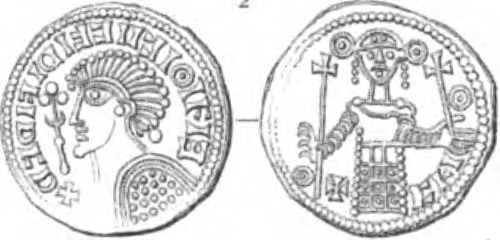
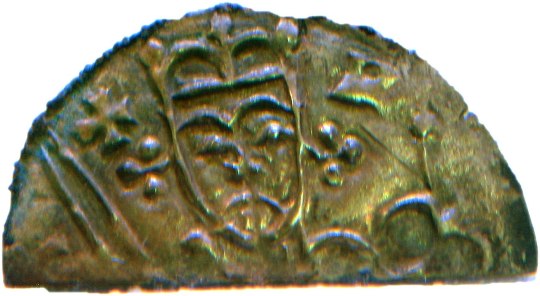
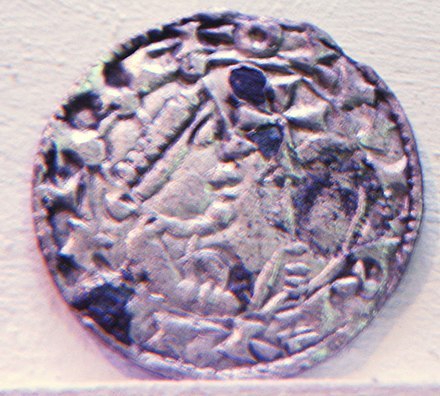

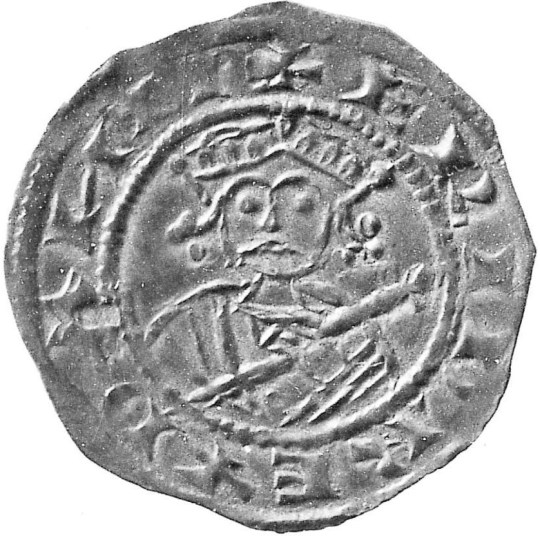

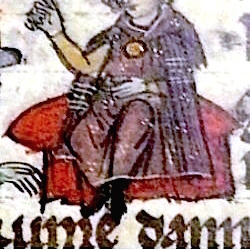
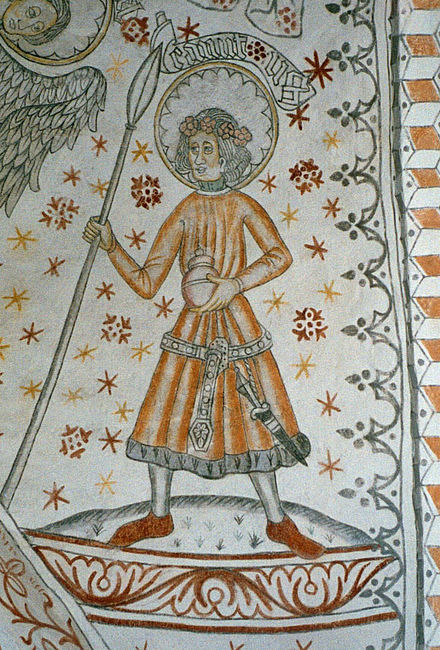
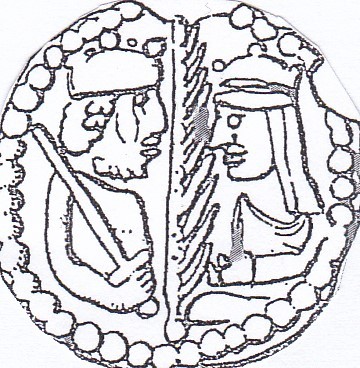
The Bastard Kings and their families
This is series of posts are complementary to this historical parallels post from the JON SNOW FORTNIGHT EVENT, and it's purpouse to discover the lives of medieval bastard kings, and the following posts are meant to collect portraits of those kings and their close relatives.
In many cases it's difficult to find contemporary art of their period, so some of the portrayals are subsequent.
1) Harald III of Denmark (c. 1040 – 1080), son of Sweyn II of Denmark and a concubine named Alvhild
2) Sweyn II of Denmark (c. 1019 –1076), son of Ulf Thorgilsson and Estrid Svendsdatter. Father of Harald III, Cnut IV, Niels I, Olaf I and Erik I
3) Niels I of Denmark (c. 1065 – 1134), son of Sweyn II of Denmark and a concubine
4) Olaf I of Denmark ( c. 1050 – 1095), son of Sweyn II of Denmark and a concubine
5) Cnut IV of Denmark (c. 1042 – 1086), son of Sweyn II of Denmark and a concubine
6) Erik I of Denmark (c. 1060 – 1103), son of Sweyn II of Denmark and a concubine
7) Erik II of Denmark ( c. 1090 – 1137), son of Erik I of Denmark and a concubine
8) Sweyn III of Denmark (c. 1125 – 23 October 1157), son of Erik II of Denmark and a concubine named Thunna
9) Cnut/Knut/Canute Lavard ( 1096 – 1131), son of Erik I of Denmark and his wife Boedil Thurgotsdatter
10) Valdemar I of Denmark (1131 –1182 ), son of Canute Lavard and his wife Ingeborg of Kiev: with his wife Sophia of Minsk (d. 1198), daughter of Volodar of Minsk and Richeza of Poland
#jonsnowfortnightevent2023#asoiaf#a song of ice and fire#echoes of the past#day 10#historical parallels#medieval bastard kings#bastard kings and their families#harald iii of denmark#harald hen#sweyn ii of denmark#niels i of denmark#olaf i of denmark#olaf hunger#cnut iv of denmark#canute the saint#erik i of denmark#erik evergood#erik ii of denmark#erik grathe#sweyn iii of denmark#canute lavard#valdemar i of denmark#canonjonsnow
7 notes
·
View notes
Text
extras: pronunciation guide
A
Albert - male - AL-bərt (English) AHL-bert (German)
Albrecht - male -AHL-brekht (German)
Alexandra - female - al-əg-ZAN-drə (English) ah-lek-SAHN-drah (German)
Alexandrine - female - ah-lek-sahn-DREE-nə (German)
Anastasia - female - ah-nah-stah-SEE-yah (Russian)
Astrid - female -AH-strid (English) AHS-trit (German)
Augusta - female - ow-GUWS-tah (German)
Auguste - female - ow-GUWS-tə (German)
B
Beatrix - female - BAY-ah-triks (Dutch) BEE-ə-triks (English) BE-ah-triks (German)
Benedikte
C
Cecilie - female - se-SEEL-ye (Danish)
Charles - male - CHAHRLZ (English)
D
David - male - DAY-vid (English) DAH-vit (German)
E
Eleonora - female - e-le-o-NO-rah (German)
Elisabeth - female - e-LEE-zah-bet (German)
Emma - female - EHM-ə (English) EH-ma (German)
F
Feodora
Franziska - female - frahn-TSIS-kah (German)
Friedrich - male - FREED-rikh (German)
G
Georg - male - GAY-org (German)
George - male - JORJ (English)
Gustav - male - GOO-stahf (German)
H
Harald - male - HAH-rahlt (German)
Heinrich - male - HIEN-rikh (German)
Heinrike - female - hien-REE-kə (German)
Helene - female - he-LE-nə (German)
I
Ingeborg - female - ING-e-bawrk (German)
Ingrid - female - ING-rid (English) ING-grit (German)
J
James - male - JAYMZ (English)
Josefine - female - yo-ze-FEE-nə (German)
K
Karola - female - kah-RO-lah (German)
Karolina - female - kah-ro-LEE-nah (German)
Katharina - female - kah-tah-REE-nah (German)
L
Leopoldine - female - le-o-pawl-DEE-nah (German)
Lina- female - LEE-nah (German)
Ludwig - male - LOOT-vikh (German)
Luise - female - loo-EE-zə (German)
M
Marie - female - mah-REE (German)
Mathilde - female - mah-TIL-də (Dutch)
Michael - male - MIE-kəl (English) MI-khah-el (German)
N
O
P
Paul - male - PAWL (English) POWL (German)
Q
R
S
Sigrid - female - SIG-grit (German)
Silvia - female - SIL-vee-ə (English) ZIL-vya (German)
Sophie - female - SO-fee (English) ZO-fee (German)
T
Thyra - female - TEE-rah (German)
Thomas - male - TAHM-əs (American English) TAWM-əs (British English) TO-mas (German)
U
V
Veronica - female - və-RAHN-i-kə (English)
W
Wilhelm - male - VIL-helm (German)
Wilhelmina - female - vil-hel-MEE-na (German)
X
Y
Z
1 note
·
View note
Text
i am saying goodbye
to the worst year of my life.
//
ich werde nicht mehr warm. das merke ich daran, dass die heizung auf 5 läuft und ich trotzdem unter der decke zittere. ich hole den föhn und erinnere mich, dass ich das schon als kind gemacht hab. dass ich es auch schon da hasste, früh aufzustehen und ganz besonders, dass es in meinem bett warm war und im außen so viel kälter. also blieb ich meistens unter der decke und föhnte mich und meinen ganzen körper, bis es brennend heiß wurde.
//
in keinem jahr habe ich so viel geweint wie in diesem. vielleicht hatte ich zehn tränenfreie tage. das weinen fand dabei in unterschiedlichen ausführungen statt:
a) in den meisten momenten versuchte ich nicht zu weinen, da sind meine augen nur feucht geworden. bei einem gedanken, einem durchspielen von situationen.
b) manchmal entwich mir ein keuchender ton, ein ächzen, gefolgt von vier bis sechs tränen.
c) und manchmal, wenn es übel lief, ein schlechter moment, auf einen schlechten tag folgte und sich all die angestaute trauer, gegen meine mühsam aufgebaute fassade presste, polterte und brach es aus mir heraus. bis aus einem lauten, unkontrolliertem jauchzen, ein dumpfes schluchzen entstand. danach bin ich oft einfach eingeschlafen. wie ein kind, nach einem langen und anstrengenden wutanfall.
//
manchmal hab ich mich im spiegel angeguckt und nicht mehr wiedererkannt. hab mich wirklich manchmal minutenlang angestarrt. es war fast wie dissoziieren. irgendwann habe ich mal fotos gesehen von frauen, wie sie vor und nach missbrauchserfahrungen ausgesehen haben... das jahr hat mich unweigerlich älter gemacht, müder. mein körper ist taktlos geworden und anfällig. und während ich mich noch am anfang des jahres gut und wohl gefühlt habe, bin ich nun ausgelaugt und kraftlos und blass. nichts hilft. weil mir die müdigkeit und das ausgelaugt sein im gesicht geschrieben steht. keine skincare, kein make-up, kein outfit, keine unterwäsche, kein kompliment. nichts hilft, meinen nun nach außen sichtbaren schmerz zu übertünchen.
//
a. sagte zu mir, dass ich einer erfahrung beraubt wurde. und das ist sehr wahr. wer ich bin, ohne alles und nur mit mir. das tut sehr weh.
//
und all das geht noch weiter. in sicherheit hab ich mich vor den großen fragen versteckt. hatte angst, dass sie mich überrollen und in einem leben einsperren, dass ich niemals wollen kann? in unsicherheit klammer ich mich nun an die gedanken, die aus der ferne nun wärmend erscheinen. dadurch habe ich aber noch viel mehr den zugang zu mir, meinen wünschen und meinen bedürfnissen verloren. was ist davon wahr und was nur eine vorgespielte romanze meines hirns, um mich vor dem quälenden gedankenkreis zu retten, in dem ich mich jeden tag drehe?
//
mariana leky, die "was man von hier aus sehen kann" geschrieben hat, sagte in einem interview: "ingeborg bachmann hat in einem gedicht gechrieben 'nicht dich habe ich verloren, sondern die welt'. und das finde ich wirklich perfide am liebeskummer, dass ja auch schöne dinge plötzlich nicht mehr schön sind, weil man sie ohne den anderen erlebt. auch ein sonnenuntergang zum beispiel kann einpacken mit seiner bescheuerten schönheit, einfach weil der andere nicht mehr da ist, um ihn mit einem zusammen zu erleben. man ist stärker in sich selbst verankert, wenn man feststellt, wie viel an eigenem man dem anderen untergejubelt hat, der jetzt nicht mehr da ist. man lernt, das alles wieder zu sich zurück zu nehmen - wie so ein alter fischer, der ein netz langsam wieder einholt. dann hat man viel gewonnen."
//
dieses gefühl kann ich so unfassbar nachvollziehen. und egal was mir die leute für einen scheiß erzählen: ich hasse es dinge nicht mehr mit jemandem teilen zu können. und warum auch immer das ist, ob ich einfach niemand bin ohne jemanden, oder in mir einfach ein riesiges leck ist: ich hasse es.
//
ich habe grob fahrlässig gehandelt und ich konnte nichts weiter tun, als dabei zuzusehen, wie mir alles entgleist. es nicht besser gewusst zu haben. habe moment für moment gehandelt, zwei finger auf eine riesige, klaffende wunde gehalten. kurz gefühlt, aber wenigstens, dachte ich, fühle ich. nähe, die keine nähe ist. das war die grausamste von allen lektionen und der höhepunkt meiner größten schwäche, seit immer. was ist schlimmer? wenn andere entscheidungen für dich treffen, oder du mit deiner eigens entschiedenen konsequenz leben musst? ich weiß es nicht.
//
es gab auch schöne momente. sie sind da, in meinem kopf, einzeln eingepackt und voneinander getrennt, isoliert. und dann doch eingebettet in dieses jahr. wie die kugeln bei "alles steht kopf", ist jede meiner kugeln auch blau. kein moment in dem ich sage: es war alles schön und gut und blieb schön, von der ersten bis zur letzten sekunde. sondern eher ein: es war schön. und dann ging es zu ende. und ich war unendlich traurig/wehmütig/wütend/xy
//
eigentlich konnte ich das immer gut unterscheiden, dieses allein sein und dieses einsam sein. dieses jahr können diese beiden zustände nicht klar voneinander abgegrenzt werden. und ich weiß: ich möchte nicht mehr allein sein.
//
ich kraul den kopf meines neffen und mache mit ihm hausaufgaben und dann kraul ich den kopf von dem sohn meiner besten freundin und beratschlage mich über seinen ersten kleinen crush. ich weiß nach diesem jahr, dass ich das auch irgendwann will. dass das manchmal und oft auch schwer wird, diese gratwanderung zwischen sicherheit und mir als person und als frau und allem. aber das ist auch das ding. ich war immer allein mit mama und papa und wenn mama und papa irgendwann nicht mehr da sind, oder irgendetwas passiert, wird aus unserem dreiergespann, nur noch ich übrig bleiben. ich will nicht allein bleiben und ich denke das auch nicht aus angst. sondern weil ich vorstellungen davon habe, wie mein leben aussehen kann. könnte. irgendwann. vielleicht.
//
ich weiß nicht wie ich das jahr loslassen soll. und vielleicht ist es auch nach alldem nicht möglich. ich habe frau h. gesagt, dass ich heilen muss. und ich habe ihr gesagt, dass ich unendlich traurig und wütend bin, dass ich all das erleben musste und es nun ein teil von mir sein muss. ich glaube, dass ich mich innerlich dagegen wehre. ich kanns nicht akzeptieren. geht grad nicht.
//
ich sehe den weg nicht. ich kann aber auch nicht gehen, weil zu viele menschen dann am boden zerstört werden. meine eigene trauer steht nicht über der der anderen.
hans curt flemming schrieb:
seit ich begonnen habe
mich selbst zu lieben
spüre ich meinen hass
gegen mich selbst
nun weine ich
um meine niederlagen
meine hoffnungen
meine unzulänglichkeiten
meine angst und die qualen
die ich mir selbst
zugefügt habe
um die liebe
die ich nicht bekommen habe
und ich weine
in einer einsamkeit
in der nur
ich
mich finden kann.
//
12/2023
0 notes
Text
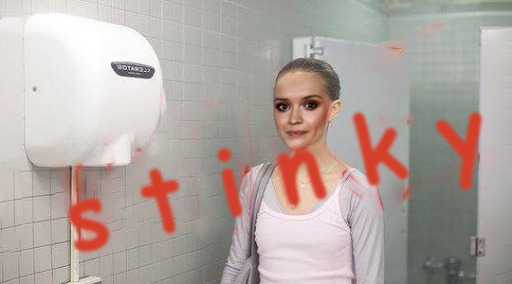
TIMING: Pre-goo
LOCATION: University of Maine Wicked’s Rest
PARTIES: Stingeky (@nightmaretist) and Stinkbhan (@banisheed)
SUMMARY: A potty poltergeist forces Ingeborg and Siobhan to bond.
Death came for all. It sat still, knocking at the doors of life, inviting bodies into its dark and cold arms. What existed beyond Death didn’t matter; it came, it asked, people gave. No one gave more to death than Siobhan Dolan, who was born in its clutches, raised under its indifference and who worshipped under its rules and chaos. Fate and Death always came together—two sides of the same weathered coin—but it was a fact of the world that some people existed beyond nature, beyond death. What did her scripture say about people like Ingeborg Endeman? Mostly, that she was a horrifying abomination and an affront of the natural order. What did Siobhan say?
“Fates, I can’t piss if you’ve spread your filth around here.” Siobhan scoffed, gesturing at the undead professor--this was probably some sort of violation of workplace principles but Siobhan didn’t care. There was only so much disgust that she could pretend she didn’t hold and discomfort that she could swallow down. She spun on her heel, uninterested in anything Ingeborg had to say. She crashed against the door, stumbling backward. She kicked at it, watching the hinges wobble but the door remained shut in place. “Okay,” she spun back around, rubbing her red nose. “Very funny. This is one of your…” Siobhan gestured vaguely. “...tricks. Open the door, Endeman.”
—
She did lack subtlety, this Siobhan Dolan. Ingeborg often thought this a complimentary trait in women (as centuries of subtlety had hardly done anything for anyone), but as the other used it to express her dislike of her, she found it unbecoming. Amusing, some days, but frustrating on most others — there was a benefit in having her undead status fly under the radar at her place of work, after all, and Siobhan could be considered a threat. Besides, there was that hint of paranoid concern she liked to deny which wondered if this woman was a hunter. (A passive one, if so, so seemingly not a problem. As of yet.)
She watched the professor of whatever-she-taught walk into the bathroom as her own lipstick was raised mid-air, ready to repaint her lips red. “Ah, and I haven’t even gone number two yet,” she said, dotting her lips with the lipstick with her eyes trained on the more pleasing person in the bathroom. Inge’s gaze released her mirror image when she heard a crashing noise, watching her colleague turn around. Half-painted lips spread into a smile, eyebrows raising in amusement and interest. “One of my tricks? What are you talking about?” She wasn’t even being facetious this time: she was not doing anything. “The door is push, not pull. Do you read?”
—
Siobhan’s eyes twitched. Her annoyance was not masked— the undead didn’t deserve decency or politeness. It was embarrassing to march herself back to the door and try all manner of directional force: push, pull, turn, caress, groan, push again. When she approached Ingeborg again, her face was red with anger. “Stop it. I don’t want to be locked in a bathroom with you; it’s not funny.” She felt like a child, complaining that some older kid was picking on her by moving her bone collection around. “I have pushed. I have pulled. Yes, I can read. No, that shade of lipstick does n-not look good on you.” The lie burned the back of her throat, searing her tongue on its pained journey out of her mouth. It was unfortunate that Ingeborg was attractive; she would have looked better decomposing but now she had robbed the world of the opportunity to have her bones. Siobhan spread her palm over her abdomen with hopes that her hand would soothe her twisting stomach; she reminded herself that the lie was worth it. “Putting makeup on a corpse doesn’t change anything,” she huffed. “Unlock the door. I want to be freed from your stink.”
—
“Oh, trust me, the displeasure is very much mutual. I’m not keeping you here, though,” she said calmly, taking in the other’s anger with some kind of amusement. If this woman was a hunter, wouldn’t she take this opportunity to bring out a knife, some salt, or cover the keyhole. (Inge’s eyes flashed to the keyhole suddenly, glad to still see it uncovered.) She continued putting on her lipstick, clicking the tube shut with the loudest noise she could produce and turning towards the other after leaving it on the sink. “Your dramatics are impressive. Are you sure you don’t wish to join us in the art department as a professor of the dramatic arts?” She did have the looks to stand on a stage, but that was hardly something that had to be said out loud. “Putting make up on a corpse changes all the same things it does for a living body, actually.” Inge moved towards the door, trying the handle while staring at the other — ready to prove that she was being ridiculous. It didn’t budge, though, and she tried once more while staring at it. “Well.” She looked at Siobhan. “What the fuck?”
—
Siobhan rolled her eyes. “No, it doesn’t. There is nothing more beautiful than a dead body— why would you put makeup on it? I want to see the discoloration, the desaturation, the gauntness.” Siobhan looked at herself in the mirror; she was beautiful but she didn’t look like a corpse. That was the tragedy of being a banshee: no livor mortis. Distracted by her own splendor, she nearly missed Ingeborg’s futile attempt to open the door. “You’re asking me?” Siobhan scoffed. “You’re the one that locked it with your undead trickery!” Siobhan waved her hands in the air as if the motion would prove her point, as if in between the waving Ingeborg would drop the act and unlock the door. The lights flickered. The bathroom groaned like a giant awoken from a nap. The lights flickered again. “I can't teach the dramatic arts.” What was acting but lying? There was a reason fae productions were often made using indentured humans. “But I’d be amazing at it if I could.” The light flicked off and when they buzzed to life again, red dripped from the mirror.
Siobhan’s nose crinkled. “I think that’s a message for you.” The oozing red text read, simply: STINKY.
—
Maybe in another world the two of them could get along. Professor Dolan was somewhat morbid, after all, with her talking of stages of decomposition as if it was nothing. Alas. “Then go find yourself a dead body? You won’t find them in the bathroom.” Ingeborg swiveled to the other, creasing her eyebrows in annoyance. “Undead trickery? I could use my undead trickery to leave this room if I wished! And I certainly would like to right about now!” She couldn’t completely, in all fairness, as it was day outside and Inge couldn’t take her body into the astral with her. And while escaping with just her spirit to leave Siobhan with a comatose body might be funny, she didn’t trust the other. “You know, I wish I could do this.” As the light flickered, she felt envious. Inge could do this in dreams, but never in the waking world. To her, this was a poor version of the dream world out there.
Inge stared at the message on the mirror, reading the word stinky with squinting eyes. “I’d sooner think it’s for you. The one who blames people is often the perpetrator of the stink.”
—
“You are a dead body, in case you have forgotten,” Siobhan sneered; Ingeborg was being purposefully obtuse, she thought, but she couldn’t help but to fall into her play a little. The situation was frustrating and so was her company. “Don’t lie to me! You undead have…” Siobhan waved her hand around in the air again. Away from her tutelage of her family, Siobhan had no way of knowing what new, perverse tricks the undead picked up. It was unlikely that forty years created a brand-new, door-locking evolution in the undead, but Siobhan wouldn’t underestimate them. Diseases often adapt, after all. The lights flickered again and the bathroom groaned. The stall doors flung wildly, flicking open and slamming shut only to burst open again—each time accompanied by a loud and shrill banging. The STINKY on the mirror seemed to ooze more. “What sort of rule is that? Clearly, I am not the purporator of the stink. I smell lovely. Smell me.” Siobhan pointed to the stalls. “Stop doing that, Endeman. The sound is annoying.” Images of maggot infested corpses swarmed Siobhan’s mind all at once, unfortunately for whomever thought the sight would terrify her, it was the sort of thing she often pictured. As the faucets started to rattle, Siobhan got another idea.
“I think this might be a poltergeist, Endeman.” Siobhan said. “It’s very tacky of you to have invited one into the toilets. You struck me as a woman of more class–albeit, disgusting class.”
—
“To you,” she sneered in return, refusing to agree with such a notion. Her body was strange, certainly, and Inge had her own mixed-bag relationship with it — but it was definitely alive. Not with something as arbitrary as human blood, nor tied to just one plane of existence: but it was alive, if only because it could be killed. “What even are you, Dolan, to judge me like this?” It was thrown in off-hand, a question she didn’t expect an answer to but wanted one for anyway.
The bathroom had to be possessed, or something close to it, and Inge felt something run up her spine — something like excitement. It wasn’t often that she was the one on the receiving end of some scaring – which wasn’t to say she was scared – and whenever she was, it was a thrill. Her eyes were wide when taking in the leaking lipstick, the flickering lights, the slamming doors and the suddenly running faucets. In her mind, pictures of dead bodies crawled around and she let out a sound of surprise. Whatever could do this had her admiration and envy, that much was certain — she wished she could manipulate reality like this. “Annoying? You have to respect the work, Dolan! It’s glorious.”
As the other dropped the word poltergeist, it did seem to fall into place. Inge turned to look at Siobhan, eyebrows raised. “Doesn’t it get exhausting, being so presumptuous? I didn’t do a thing! But you have to admire its fervor, or are you incapable of looking beyond anything when it’s supposedly dead?” The sinks were clogged up, somehow, and water splattered onto the ground. “I wonder what that makes you, Dolan, a slayer of sorts …? Or just extremely dull?”
—
What was she? Siobhan preened at the suggestion of it; she was something great and powerful and perfect and beautiful and much, much better than the filthy abomination that Ingeborg was. She opened her mouth to explain what she was, and then she thought better of it and snapped her lips shut. It wasn’t wise to be so free with her knowledge, even as her fingers twitched at her side and her jaw ached, begging to be unclenched so the one, beautiful word, could be uttered: banshee. She had every right to judge the undead, ridicule them and make it known how much Death did not agree with their existence. Siobhan looked at herself in the mirror, fixing her strands of soft brown hair as STINKY continued to dribble down.
“Glorious?” She turned to Ingeborg, scandalized. “What is the point of it? Do either of us look scared? It’s a waste of effort.” Siobhan tapped Ingeborg’s reflection in the mirror. “Now this is scary.” As water splattered on to the ground, Siobhan lifted her feet, plopping around in the water as she groaned. All of this was nothing more than an inconvenience and she was just about to pull the salt she kept on her out of her pocket when the other professor went on. Slowly, Siobhan's brown eyes widened. “Slayer?” She clutched her chest, scoffing. “Slayer?” She repeated, offended beyond regular measures. She turned her head around and scoffed everywhere she looked, gesturing and opening and shutting her mouth as she struggled to articulate her disgust with the sentiment.
“I’m a banshee,” Siobhan said, slitting clutching her chest. “A banshee! I’m Irish! I’ve got bones in my pockets!” She pulled the mandible of a mouse out of her inner jacket pocket. “By what idiotic metric would you even fathom that I was a slayer? A slayer! If I was a slayer, you’d be dead—again. I’d be beheading you right now! I would have beheaded you months ago!” Granted, she had thought about beheading her, but she thought about beheading most people that she meant—it was one of her ‘happy thoughts’. “A slayer!” She scoffed again and again and even as the bathroom started to flood, water rising up to Siobhan’s ankles. “I’ve never been so offended. I am a beautiful, superior fae and you would compare me to a disgusting, lowly human? And at that, a breed of hunter? Me?” Siobhan spun around. “I can’t–I don’t even want to look at you right now. You’ve offended me so greatly. If I wasn’t in exile I would sic pixies on you. You’re so lucky I can’t do that. You’re so fortunate.”
—
It was true, neither of them looked scared. The poltergeist must be going through some of the possibly worst frustration a fearmongering creature could go through: the one that came with failure. These were cheap tricks, too little to inspire any kind of reaction besides one of glee from Ingeborg, and Siobhan Dolan seemed hard to shake herself. Still, she carried a certain level of respect for creatures and people similar to her, so she frowned at the other’s assessment. “Maybe they’re new to this, the scaring. We should support their efforts, even if they’re not particularly effective on us. If it was a freshmen here, they’d have peed their pants right where they stood!”
She was annoyed with the water, which was not yet reaching her socks (thank God for her leather, expensive boots) but was capable of doing damage to the suede on the long term. She was more focused on Siobhan than the boots, though, wondering what her accusation of the other being a hunter would do. Either she was one, and it would lead to something annoying and potentially dangerous, or it would be offensive. To call something supernatural a hunter, after all, was a horrible thing. Inge knew that very well: when the tiny Bugbear had called her one, she had been terribly offended herself. There was no worse thing to be on this earth.
And so, Siobhan revealed herself. She was a banshee. Now that was interesting, more interesting than whatever the poltergeist was doing. Inge stared at the bone, then at the other. “I don’t know, there are some real lazy slayers out here. You sure seem to share some of their viewpoints,” she said. Her hand traveled to her neck at the mention of beheading, caressing the scar that lined her throat. “A banshee is much better, though. I can’t say I’ve met any before.” Fae were strange things, still a mystery to her even if there had been decades of experience with the supernatural. They liked their elusiveness. She would respect it, if she wasn’t so curious herself. Her lips spread into a smile, impish like the pixies Siobhan talked about. Or, at least, so she assumed. “Oh yes, I’m very fortunate to be stuck in this room with you right now where we splish splash around. And what’s this, Dolan? You’re exiled?” Now, she was just going to be mean. “Can’t be that superior, if that’s the case.”
—
“What? Like they’re a child?” Siobhan was particularly offended by the idea of thoughtfulness; her mother was never forgiving towards her sensitivity and Siobhan learned that if anyone wanted to get better at something, it needed to be done with a firm hand. No, Siobhan absolutely wasn’t going to pretend to be scared just to temper the feelings of some untalented poltergeist. “You can scare a freshman by telling them there’ll be a group project. It’s not hard to scare a freshman.” She did it all the time and only occasionally by accident.
“Shut your gob,” she hissed. She was done. The stalls kept banging and there seemed to be no end to the water rushing out of the burst pipes and Siobhan was done. She thrust the bones back into her pockets and rummaged the cavernous holes for the tiny packets of salt she kept on her; if there was anything that annoyed Siobhan without abandon, it was ghosts. She hated ghosts. “I’m still superior to you, you undead fiend; you abomination of the natural order; you disgusting, abhorrent, attractive, useless speck of wasted space. I am a banshee. I am a fae and I’m going to do something I should have done five minutes ago.” Triumphant, she pulled a fistful of tiny packets from her pocket; white paper jutting out from between her fingers. One slipped out from her grasp and plopped into the rising water, floating to the top where its black label glared at them: “salt” it read, with its own cartoon salt shaker.
Siobhan’s eyes burst into pure blackness, two pools of ink. She shoved her salt-packet filled fist towards Ingeborg. “Do you want to be useful for once?”
—
“Well yes, a new poltergeist might as well be a child! I don’t expect you to understand, but there’s a learning curve when it comes to scaring. Not your area of expertise, though, so …” Inge shrugged, waving away the rest of her sentence. Siobhan’s comment on freshmen left her with a genuine sound of amusement, though, much to her own dismay. It was funny, but to laugh at something someone who disliked her said, well … it was below her. “And yet it’s so much fun.”
Siobhan kept going on, throwing vitriolic insults that Inge wanted to let slide off her back. She succeeded mostly, but she wasn’t immune to the nagging anger that rose in her as the other went on about her supposed superiority. She looked at the other with an angry gaze, “A banished fae,” she said, as if that would undo all of her arguments. “And oh, you’re so limited if you think the natural order is so boring as not to include us undead! Nightmares are natural, lest you forget, and besides — it’s not as black and white as you might want to think it is.”
And then the banshee was pulling out salt, and worse, holding it out to her. Inge looked at the packets of salt, glad they were covered in crinkled paper, and looked up at Siobhan. Her eyes were as black as the India ink she used in some of her works, a sight that made her want to move closer to inspect it and grow inspired by it. “No.” She shook her head, curt and determined. “Get that shit away from me. Do what you’ve got to. I’ll watch.”
—
Scaring wasn’t really Siobhan’s expertise; she had been raised to fit in, draw as little attention as possible, not that she really did that or wanted to do that. In fact, her whole family talked about the importance of plainness and never once practiced it. Anyhow, scaring wasn’t her business; it was a hobby. She didn’t know what suddenly made Ingeborg and authority and then it all clumped into place like a soggy jig-saw puzzle. Undead. Salt-aversion. The sparkle on her skin as she passed a big window on a sunny day, which Siobhan had previously begrudgingly accepted as the strange glow that beautiful people sometimes had. Her insisting that nightmares were natural without any acknowledgement that she wasn’t a nightmare, she was just a thing that could cause them—completely different.
Siobhan laughed, throwing her head up to the swampy ceiling. As she quivered with amusement, a couple more packets of salt fell from her hands and plopped into the water. “You’re so boring,” she said, lowering her gaze back on Ingeborg, “so predictable. How long have you been alive? You haven’t learned any style? Any originality? You’re not even moderately useful to the natural order; at least vampires and zombies clean up. What do you do except run around like a disease?” The black of Siobhan’s pupils burst, plunging her eyes into an inky darkness. The world turned dark and Ingeborg faded into a soft white stain. When she spun around, she found a girl sitting atop the stalls, greasy hair stuck to her bloated blue cheeks and her legs kicked out like she was running an invisible marathon. Siobhan tore open the salt packets and threw them at her.
The flickering lights stopped, the stalls creaked on their hinges, wobbling with inertia, the faucets squeaked shut, and Siobhan flicked herself around, irises back to brown, scleras back to white. “You’re utterly useless, you know that?”
—
She was boring? Inge let out a similar laugh to the banshee’s, finding the entire statement so ludicrous, so ridiculous — hadn’t Siobhan been proving this entire time that she was small-minded and limited? She couldn’t understand why someone would not find the existence of undead interesting, why someone would think the mere idea of there being people out there who could move from one plane to another boring! She was anything but boring. She refused to be anything but boring. “You’re the boring one,” she retorted once her voice had ceased to bubble with that echoing laugh. Her eyes were wide with indignance. “You know nothing of my style or originality, because all you know to do is narrow your eyes and stare down a tunnel of small-mindedness!”
She had half a mind to put the banshee to sleep and give her a daydream, show her how original and unboring she could be — but she refrained as there was still that poltergeist to deal with. Besides, when she saw Siobhan’s eyes turn inky black she was enthralled, thinking the woman more beautiful than she had ever appeared before. Inge watched with a begrudging awe, wishing she could appear that way when on the earthly plane but limited so dreadfully in this existence.
Everything ceased, then, and it seemed that the inky black eyes and salt-throwing had done their job. Inge was annoyed that Siobhan had succeeded where she could not, but she tried not to show it by shrugging casually. “I don’t like getting in the way of my ilk,” she said, sparing a look at herself in the mirror. At least her lipstick looked right. “This was very enlightening, Siobhan. We should do it again.”
—
Siobhan’s insides coiled and the beginnings of a scream burned behind her ribs. She didn’t say anything; Ingeborg Endeman had earned the final word and Siobhan was left soggy and clutching mini-satchels of salt. When the professor left, somehow prettier after their ordeal than before it, Siobhan waited and then followed her out, watching her back as she claimed the hallway with her even strides. She wasn’t sure if she wanted Ingeborg to look back and see her and if she did, what would she see? Siobhan didn’t know what sort of face she was making, she’d avoided her own gaze in the stained bathroom mirror as she exited. She clutched the wall and held her breath. Finally, Ingeborg turned and disappeared and finally, Siobhan could breathe.
Ingeborg Endeman was dead, unbothered, delightfully macabre and timelessly beautiful and Siobhan hated her for it.
#that's the scene from black swan you know the one#i love inge#would die for her#also rip to the toilets#c: ingeborg#stinky#s1#writing
8 notes
·
View notes
Text
Everything remained unsaid.
Ingeborg Bachmann, In the Storm of Roses: Mortgaged Time; from 'Departure from England', tr. Mark Anderson
379 notes
·
View notes
Note
Who would you call if you had to hide a body?
@nightmaretist .

#mentioned: ingeborg#c; ingeborg endeman#;; anon ask#;; answered#;; interview with the vampire || answered asks
3 notes
·
View notes
Text
euphoniouspoetry
"I long for you and for our fairy tail"
- Ingeborg Bachmann from a letter to Paul Celan written c. June 1949
#artwork#artists on tumblr#books & libraries#quotes#dark academia books#books#what we do in the shadows#hbo max
1 note
·
View note
Text
"I long for you and for our fairy tale."
- Ingeborg Bachmann, from a letter to Paul Celan written c. June 1946
#poetry#writersofinstagram#writing#writersociety#quotes#aesthetic#poems#poemsbyme#poemsociety#love#fairy tales#ingeborg bachmann
64 notes
·
View notes
Text

Ingeborg Bachmann, from “Malina”, tr. Philip Boehm, originally published c. 1971.
89 notes
·
View notes